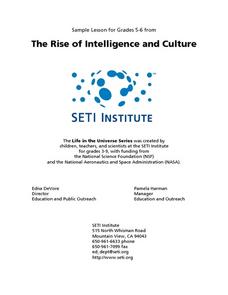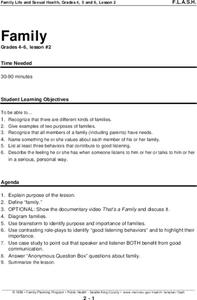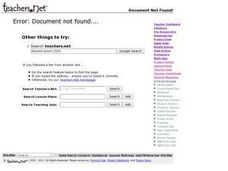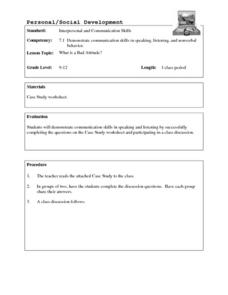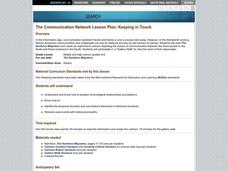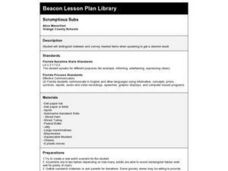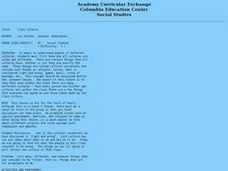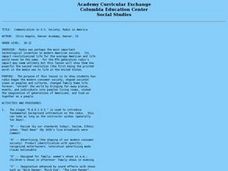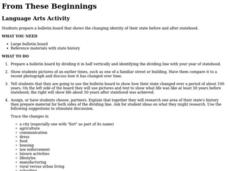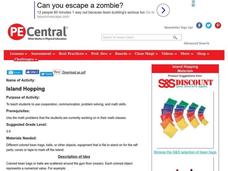Curated OER
Extraterrestrial Communication: Can We Talk to Anybody Out There?
Pupils examine the possibilities of communication with other living organisms within our solar system through research and hands on activities, as well as observing and analyzing teacher demonstrations.
Curated OER
Communication 1: The Basics
Students identify the differences between assertive, aggressive, passive and manipulative behaviors. They relate each behavior to a relationship they have with a family member.
Curated OER
Family
Students investigate the purpose, needs, and behaviors of a variety of configurations of families. The benefits of good communication skills among family members are emphasized in this lesson.
Curated OER
Communication -- Part Two
Students practice on becoming an effective listener and speaking clearly. They experiment with one another in which only one student of a pair can speak.
Curated OER
Two Way Communication
Middle schoolers play a modified game of hangman. One students is the drawer and the other the communicator. They also experiment playing the game in which both middle schoolers can talk.
Curated OER
Communication 4: Saying "NO"
Learners complete a role playing game called the "refusal card game" in order to encourage three main assertive behaviors when saying NO.
Curated OER
What is a Bad Attitude?
Students demonstrate their communication skills by answering questions on a case study worksheet and participating in a class discussion.
Curated OER
A Happy Time
Second graders listen to stories about feelings, identify their own feelings at specific times in their lives, and express their feelings in words and through writing.
Curated OER
Keeping in Touch
Learners read about the Northern Migration of African Americans in the 19th century, and create an eight panel cartoon depicting the means of communication between freed slaves in the North and those still enslaved in the South.
Curated OER
Scrumptious Subs
Students distinguish between and convey needed items when speaking to get a desired result.
Curated OER
Post Office Stamps
Students research and analyze how communication has changed over time. They chart communication developments on a timeline, and create commemorative stamps depicting forms of communication.
Curated OER
Class Culture
Students participate in a discussion about culture. They list many different and unusual things that they consider wrong, and unacceptable to do.
Curated OER
Communication In U.S. Society; Radio In America
Students see how radio began the modern consumer society, shaped societal views on peoples and cultures and changed family home life forever. Radio shrank the world by bringing far-away places, events, and individuals into peoples living...
Curated OER
Family Communication Style
Eighth graders explore the different ways that families communicate with each other. After a lecture/demo, 8th graders generate a list of relationships that might benefit from practice in the art of conversation and communication.
Curated OER
The Zimmermann Telegram
Young scholars decode a fictitious message and write messages using the code. Students are shown the significance of the creation of the Zimmermann telegram to aid in communication and how it altered history.
Curated OER
From These Beginnings
Students prepare a bulletin board that shows the changing identity of their state before and after statehood.
Curated OER
Island Hopping
Students to use cooperation, communication, problem solving, and math skills.


